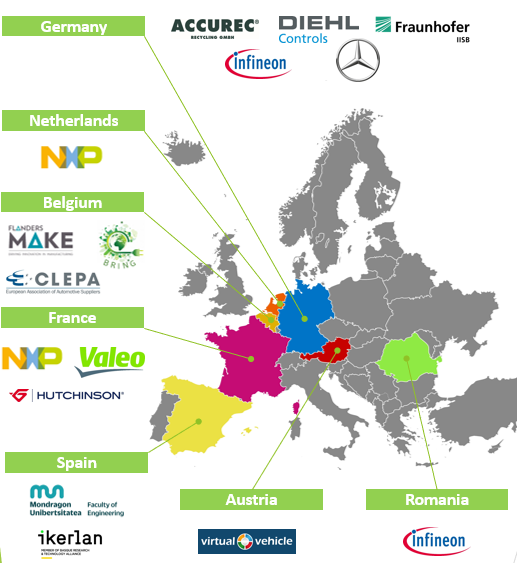LIBERTY– Lightweight Battery System for Extended Range at Improved SafetY
Imagine that you drive your electric vehicle from San-Sebastian to Barcelona, from Stuttgart to Brussels or from Eindhoven to Paris without the need of recharging along the way. Then have it quickly charged again without fear of eating into the battery’s remaining life.
At present this could cause some issues – that’s where LIBERTY steps in:
Design an electric vehicle battery that offers 500 km of range before ultra-fast recharging in just 18 minutes – and all this combined with a battery life expectancy in excess of 300.000 km.
These are only some of the challenges that the European project LIBERTY, led by the Basque technology centre IKERLAN, will address along with 15 additional European partners ranging from Universities providing fundamental research, leading technology giants, TIER suppliers, up through the OEM level. Mercedes-Benz AG, one of the partnersof this strategic Horizon 2020 EU project for sustainable mobility, will integrate the batteries developed by LIBERTY in one of its electric vehicles in order to demonstrate the technological feasibility of all LIBERTY innovations.
The project aims to develop batteries that will have the same useful life as those of current combustion engines, i.e. up to 20 years or 300 000 km. At present, the lifetime of an electric battery is typically lower, with guarantees of up to 10 years and around 150 000 km, while consuming up to 50% of the vehicle’s cost.
The batteries to be developed in LIBERTY will provide a range increase of up to 25%, thus allowing driving up to 500 km without the need for recharging. And once recharging does become necessary, this can be accomplished in a mere 18 minutes, less than half the time under contemporary technologies.
Improved and standardized battery safety / sustainability will serve other important aspects addressed by this project. To ensure that the valuable battery does not have to be disposed immediately after its useful life, a second useful life is already being designed, where demands on fast-charging weight and energy density prove less important. Here they could be re-purposed to support a photovoltaic park or to store the energy generated in the solar panels of an urban building, for instance.
Egoitz Martínez-Laserna, researcher in the energy storage area at IKERLAN and coordinator of the LIBERTY project, explains that, this research “will address many of the main barriers currently hindering the wider adoption of electric vehicles, as we work to address key consumer concerns such as the range of the vehicle, charging times, battery life, increased battery life cycle, battery safety and of course the considerable cost of the batteries”. To develop the numerous and challenging LIBERTY innovations, the project lead by IKERLAN joins forces of sixteen renowned members from 7 EU countries from the fields of research, academia and industry, including Diehl Controls, Hutchinson, Infineon, Mercedes-Benz, NXP, Valeo, Accurec, Virtual Vehicle Research, Flanders Make, Fraunhofer-IISB, Mondragon Unibertsitatea, BRING and CLEPA.
Read more about LIBERTY in our press release.
March 24, 2021

